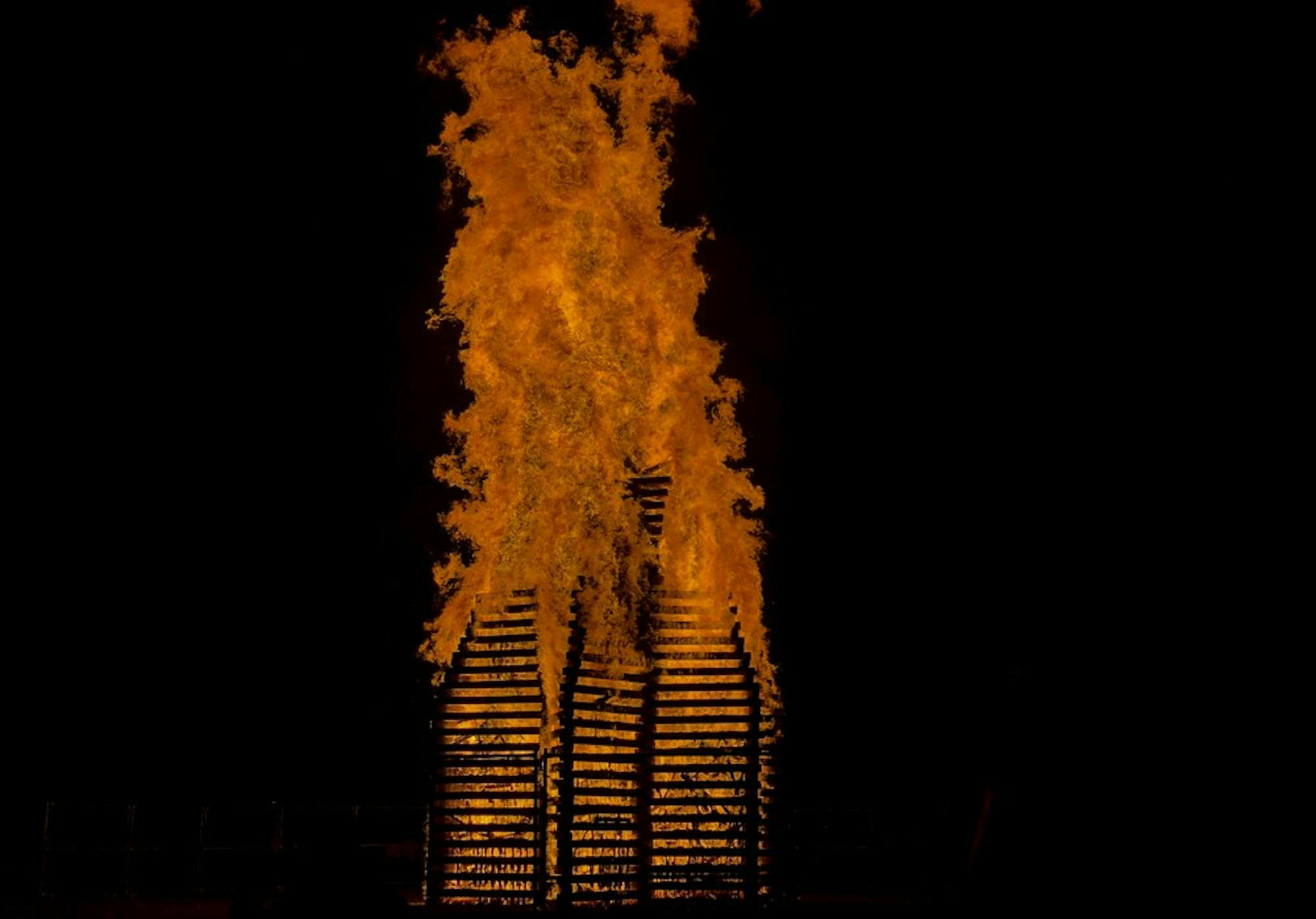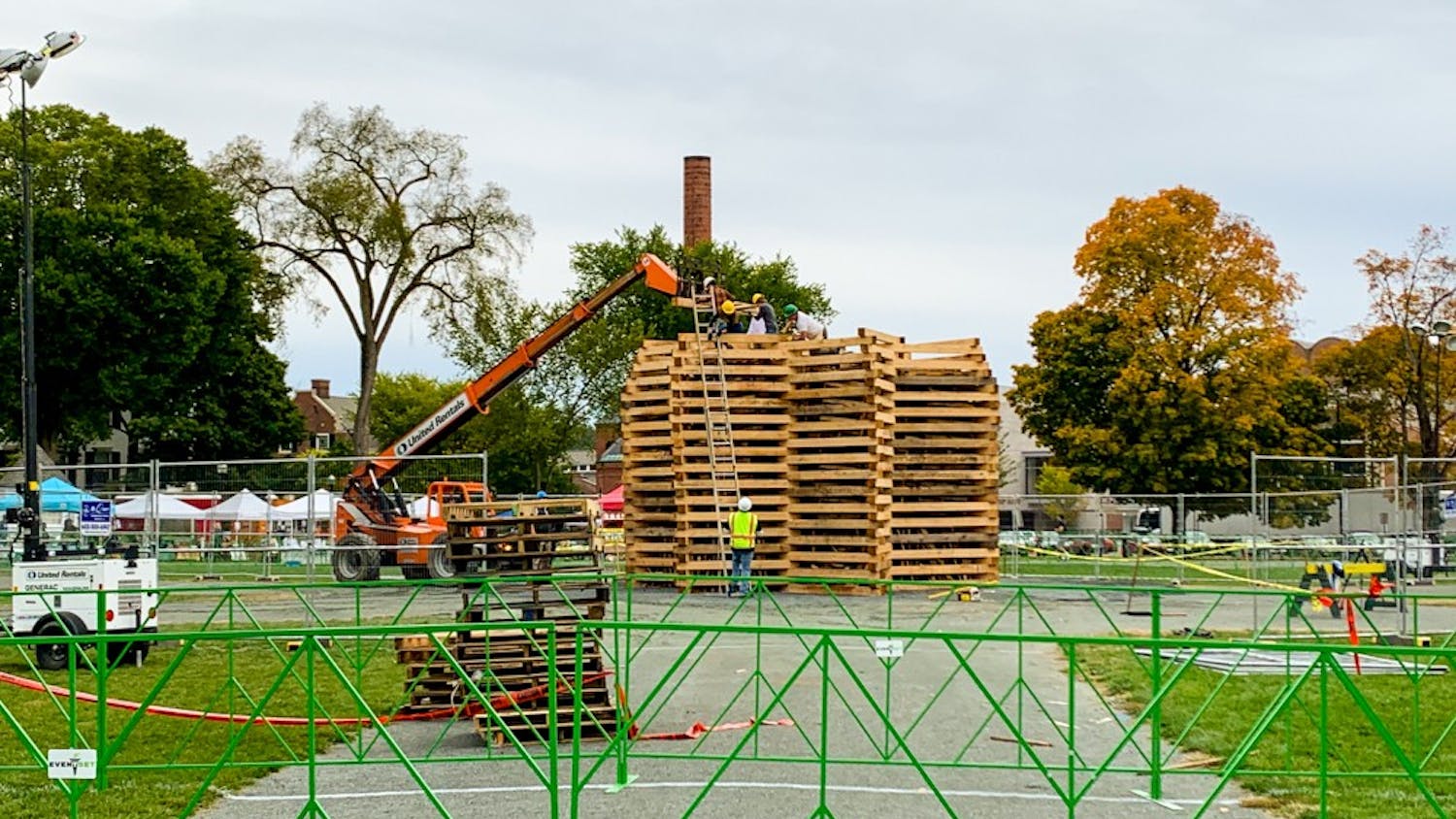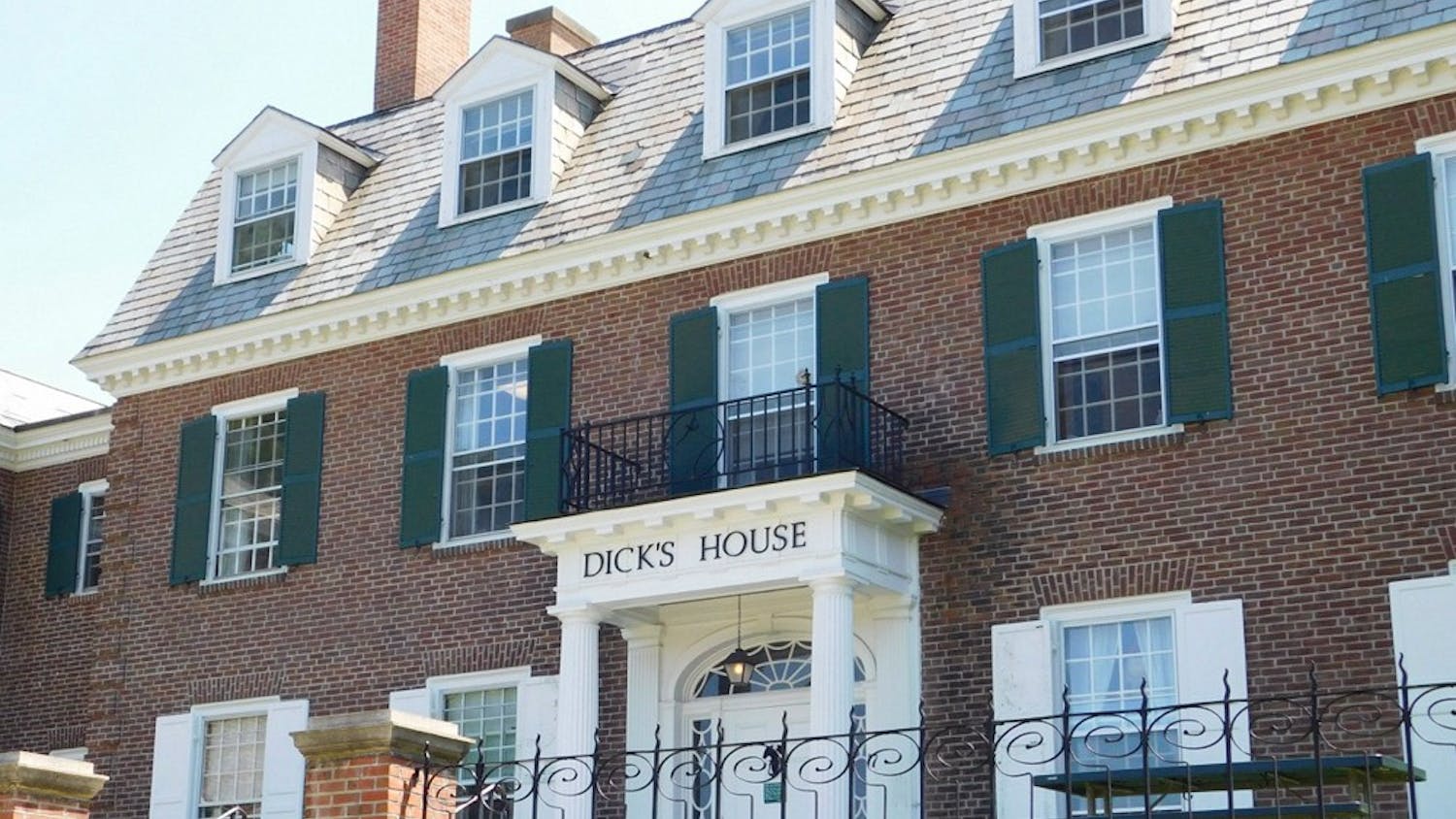No students attempted to touch this year’s Homecoming bonfire, marking the second year without major bonfire incidents. Additionally, the College saw fewer Good Sam incidents than past years and only one arrest, according to interim director of Safety and Security Keysi Montás and Hanover police chief Charlie Dennis.
On the Tuesday before Homecoming, dean of the College Kathryn Lively sent out an email to all undergraduates in which she addressed concerns about the annual bonfire. The email stipulated that first-year students were to make “just one loop” around the fire and that any students caught attempting to touch the fire would face up to a three-term suspension. In addition, the community was notified that, were any student to “enter the inner ring,” on-duty members of the Hanover Fire Department would extinguish the bonfire. Following the guidelines set forth by the College, no students attempted to either climb the fence or to touch the bonfire.
In recent years, a handful of students have gotten past the fence and entered this inner ring, which the town calls the “collapse zone,” in an attempt to touch the bonfire. Seven students attempted to enter the collapse zone in 2017 and an estimated 50 did in 2016, according to previous reporting by The Dartmouth.
“This is exactly what we were hoping would occur in terms of a shift in how bystanders interact with the fire,” said Hanover town manager Julia Griffin. “I think the College making it very clear that if one person attempted to touch [the fire], [it] would be extinguished, is what it’s taken for people to take seriously our concern … in terms of that fire’s capacity to collapse in any direction at any time.”
For this year’s bonfire, the town was on particularly high alert, expecting a large crowd for a Homecoming weekend that coincided with the College’s 250th anniversary celebration and with the peak of leaf-peeping season, according to Griffin.
Dartmouth Safety and Security and the Hanover Fire Department worked together throughout the evening to ensure bonfire safety. During the event, embers flew out from the bonfire, in some cases floating down into the crowd of spectators. Montás and Hanover Fire Department chief Martin McMillan remained in constant communication throughout this period, according to Montás.
“Had the wind shifted where the sparks were to come in below, then we were ready to spray a mist of water to subdue the sparks,” Montás said. “We were monitoring very closely and were at the ready.”
According to Griffin, several of these embers landed on the clothing of spectators and “one or two” onlookers sought medical attention from an ambulance stationed nearby after embers landed in their eyes.
However, engineering department chair Douglas Van Citters ’99, who served as head of a committee tasked with redesigning the bonfire and organizing social activities, said that he believes these embers were “the function of the pallets that have been used for many years as the filler for the fire.” He said that the department “certainly paid attention to this,” but the gusts subsided and the sparks became a “non-problem.”
He added that this year’s fire — which had the same design as last year — burned and collapsed exactly as expected.
Van Citters first took up the task in the summer of 2018, after Hanover sent a letter informing the College that it would not approve an outdoor activities permit for the bonfire unless Dartmouth agreed to modify its structure.
Before the 2018 bonfire, Van Citters conducted a failure analysis of the previous tower’s tendency to collapse sideways. He then began the process of designing a tower that would instead fall in on itself. Van Citters decided to modify the top of the tower to resemble a “beehive-shaped structure” that would fall in first, subsequently causing the “remainder of the tower to fall in on itself.”
“[The tower] did exactly as expected,” Van Citters said. “In fact, the collapse was identical to last year’s, where the very top level fell into the center first and after that, about 20 minutes later, the remainder of the fire collapsed inward on itself.”
Dennis called this year’s Homecoming a “very safe event” and applauded the College for providing attendees with other “opportunities and events to enjoy” along with the bonfire.
“The Hanover Fire Department and the Hanover Police were outstanding,” Montás said. He also noted that additional support was provided by Green Mountain Concert Services, a company that provides security for events throughout the Northeast.
Additionally, Griffin added safety and security issues were kept to a minimum during the weekend.
“It went really well,” Griffin said. “I heard of no problems. It was about an average Homecoming in terms of the number of issues that [Safety and Security], [Hanover Police] and Hanover Fire dealt with.”
In certain locations — notably near the construction crane on Engineering Drive where two students were arrested for trespassing earlier this term — the town and the College stepped up security according to Griffin. No incidents were reported at these sites.
According to Dennis, no arrests were made on the night of the bonfire. The only student arrest of the weekend — for underage intoxication — came on Saturday.
Montás also said that his office had seen a “noted decline” in Good Sam incidents relative to Homecoming in 2018 — only three students required the service over the weekend.
“This weekend almost felt like a regular weekend,” he said.
Dennis emphasized that this and last year’s Homecoming weekends were “certainly better than in years past.”
Nicholas Taborsky ’23 described his Homecoming experience as “pretty great” and noted that other students were not bothered by the one-lap rule.
“It obviously would have been fun to run around,” Taborsky said, “but I don’t think it detracted from the experience.”





